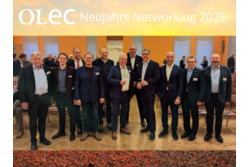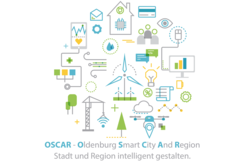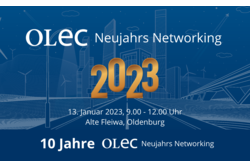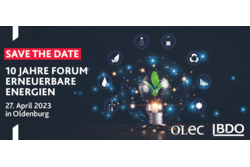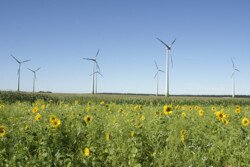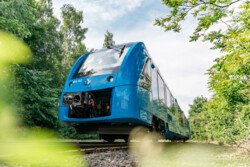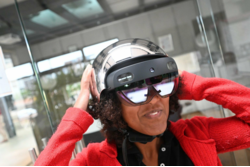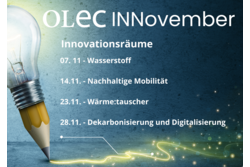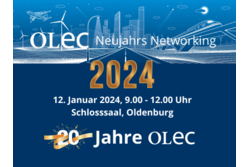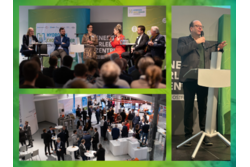
More than 200 representatives from politics, business and science met at the fourth Hydrogen Cross Border Conference (HCBC) to discuss the future of the hydrogen economy in north-west Germany and the northern Netherlands, as well as in Europe and the rest of the world. This year, the hydrogen conference was held on 28 February at the Aurich Energy Experience Centre. Across national borders, language barriers and cultural differences, the representatives of both countries agreed on one thing in particular: hydrogen is and remains the key to the energy transition and essential for meeting the common climate targets. "Climate change doesn't stop at national borders and neither should the topic of hydrogen," said Olaf Meinen, District Administrator of the Aurich district, when welcoming the German and Dutch guests.
What can a functioning, regional hydrogen value chain look like? What are the benefits for citizens? And, in view of the 60 billion euro shortfall in Germany's climate fund at the end of last year, many people were asking themselves: what framework conditions can and must legislators create to drive the hydrogen economy forward? And - what prospects are there with the help of research and development and digital solutions to make the use of hydrogen more economical and thus competitive with other energy sources?
These and other questions were discussed in depth with the help of specialist presentations and discussion rounds with German and Dutch representatives.
Christian Meyer, Lower Saxony's Minister for the Environment, Climate Protection and Energy, described hydrogen as a "valuable and highly sought-after" energy source. Above all, however, he said that it would give an economic boost to those who invest in this field at an early stage. The Minister emphasised that the state was aware of the importance of hydrogen and was therefore continuing to invest in network expansion and innovation, even in view of the tight budget situation. The minister promised that commitments made would be honoured. A commitment that was greeted with applause by the participants. Because, here too, there was a consensus that without the necessary impetus from politicians and appropriate regulation, it would not work.
Johan Hamster, representing the province of Groningen, and his counterpart Henk Jumelet from Drenthe travelled from the Netherlands, alongside a large number of entrepreneurs and other hydrogen stakeholders from the Netherlands. "We want the region where the energy comes from to also benefit from it and believe that hydrogen is an opportunity for our citizens." A province that has always provided the energy for the Netherlands is now the region with the greatest energy poverty, where people can no longer pay their bills. This energy poverty must be solved," said Hamster.
The power of change lies in cross-border cooperation, added Jumelet. This was also emphasised by Marieke Abbink-Pellenbarg from the Dutch New Energy Coalition. "Cooperation starts with getting together. Today's conference is a very good start," said Abbink.
Joining us from Brussels was Jorgo Chatzimarkakis, CEO of the Hydrogen Europe Organisation. The German-Dutch border region will one day be the "power centre of the European Union when it comes to the hydrogen economy", said Chatzimarkakis. Hydrogen has now moved to the centre of the energy transition, but at the same time he emphasised that this cannot be achieved if gas and fossil fuels continue to be subsidised. There needs to be a rethink here. Anyone prioritising renewable energies, as the European Union is doing, must also make hydrogen a priority, said Chatzimarkakis.
Day two of the conference included an excursion to the north of the Netherlands with a visit to Holthausen Energy Points (tank system manufacturer), the ENTRANCE expertise centre, the DNV technology centre and a tour of the "zero emission coach boat".
About the HCBC 2024
The Hydrogen Cross Border Conference is an annual conference on developments in the hydrogen economy on both sides of the German-Dutch border. The HCBC 2024 was organised by the Initiative H2-Ostfriesland, the H2-Region Emsland, MARIKO GmbH, FME, OLEC e.V. and the New Energy Coalition, among others. Funding was provided by the organising partners and the state of Lower Saxony, the economic development agency of the district of Aurich and the province of Groningen, the Green Shipping Waddenzee project and EWE.
Translated with www.DeepL.com/Translator (free version)




